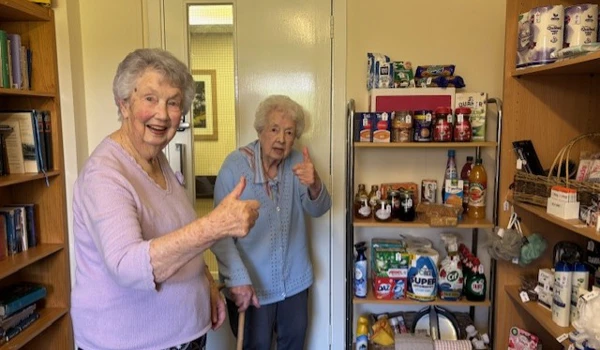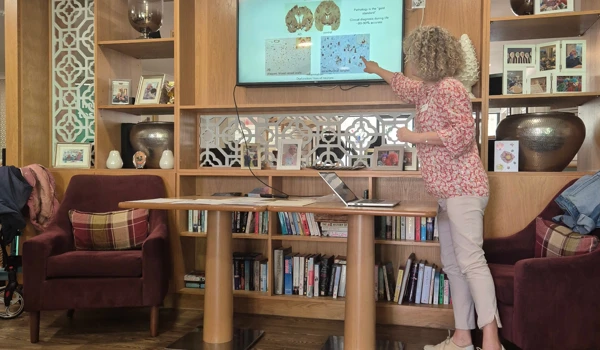The Five W’s of Hormone Replacement Therapy (HRT)
World Menopause Day, founded by the International Menopause Society (IMS), was founded to raise awareness of menopause and to support options to improve health and well-being for women in midlife and beyond.
Menopause is a natural phase in a woman’s life that typically occurs between the ages of 45 and 55, with the average age for menopause transition at 51, according to NHS Employers.
It marks the end of a woman’s reproductive years and is characterised by a range of hormonal changes, with a decrease of oestrogen, progesterone, and testosterone.
World Menopause Day 2024 highlights Hormone Replacement Therapy (HRT) exploring the 5Ws: “Who, What, When, Why, and Where”.
Who is HRT for?
Your doctor or nurse might recommend HRT if your menopause symptoms are affecting your daily life. HRT can help with hot flushes, night sweats, urinary symptoms as well as conditions such as:
- Premature Ovarian Insufficiency – When menopause happens before the age of 40. Even if there are no symptoms, HRT helps protect against conditions like osteoporosis (weak bones), heart disease, and brain issues.
- Early Menopause – If menopause occurs before the age of 45, HRT an be offered even if there are no symptoms because it can help protect long-term health.
“Some people believe MHT (HRT) is a ‘fountain of youth’, but there’s little scientific evidence for that. It's important to remember MHT (HRT) is not recommended solely to prevent aging, memory loss, or dementia.” – Menopause and Menopause Hormone Therapy Leaflet by IMS
What is Hormone Replacement Therapy (HRT)?
Hormone Replacement Therapy (HRT) replaces the hormones your body naturally stops producing after menopause. These hormones, like oestrogen and progesterone, help manage menopause symptoms and protect your overall health. HRT can be taken in different forms, including tablets, patches, sprays, and gels.

When to start and stop using HRT
You should start using HRT for symptom relief such as hot flushes and night sweats that begin to interfere with daily life. Early menopause and Premature Ovarian Insufficiency are also reasons to start using HRT. Starting as soon as possible is recommended to reduce the risk of long-term health problems like bone thinning (osteoporosis) and heart disease.
There is no set rule for when to stop HRT. Some women use it a few years, while others may need it longer. It's important to regularly check with your doctor to see if continuing HRT is the right decision. There is no strict limit on how long you can use HRT, but long-term use may carry some risks. Your healthcare provider will help weigh these risks against the benefits based on your personal health history, and you should have an annual discussion of this risk to benefit balance.
Why is HRT important?
HRT can help women manage the difficult symptoms of menopause and protect against conditions that become more common after menopause, such as:
- Hot flushes and night sweats – These are the most common and often bothersome symptoms of menopause.
- Vaginal symptoms – Including dryness or discomfort, which can affect sexual health and quality of life.
- Bone health – HRT helps protect against osteoporosis, a condition that weakens bones and can lead to fractures.
- Heart health – For some women, HRT may reduce the risk of heart disease, especially when started around the time of menopause.
Where can you access HRT?
HRT can be accessed in a number of different ways, including through your GP, gender identity clinic or online pharmacy. It’s important to consult with a doctor before starting HRT to discuss your health and potential side effects. Local LGBTQ+ organisations and support groups can also provide valuable information and resources.
More resources about Menopause:


HRT Explained
Take a look at this video from the British Menopause Society on Hormone Replacement Therapy.

Read more Articles & News

22/08/2025
“Meaningful connections” with care home residents inspire hundreds of schoolgirls to hold fundraising dance competition
Withington Girls' School students raised nearly £2,000 for Downing House dementia care home and Family Fund with their 'Dancing Through the Decades' competition. Read more about their fun event.
Read More
22/08/2025
Open (almost) all hours
Residents at Abbeyfield House in Brecon are enjoying a new on-site honesty shop. Stocked with everyday essentials and treats, the shop helps residents maintain their independence and makes life easier for everyone.
Read More
22/08/2025
Speedwell Court and Westfield House hold events to mark Dementia Awareness Week
Learn how two care homes celebrated Dementia Action Week with a party and bake-off fundraiser at Westfield House and an expert-led awareness day at Speedwell Court.
Read More